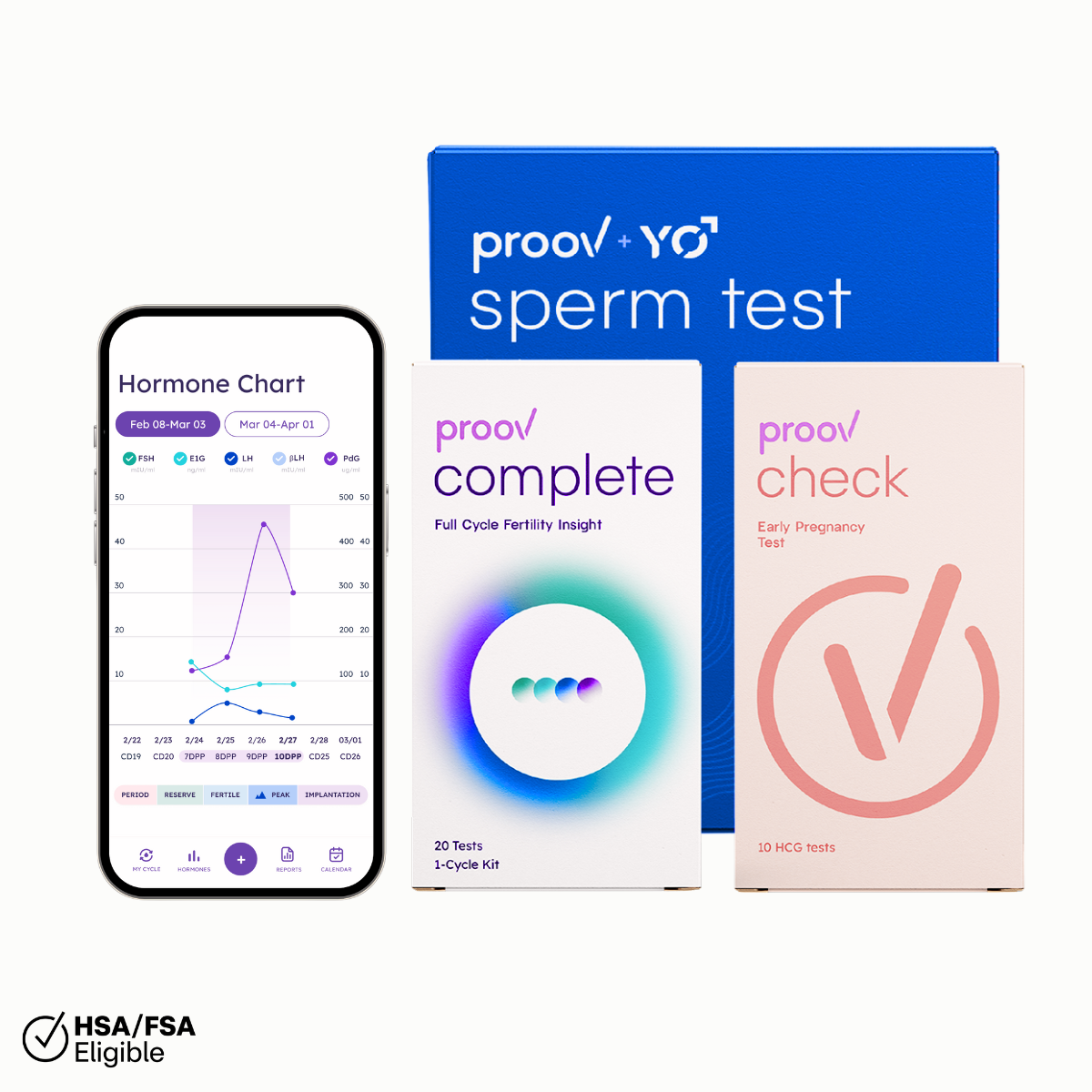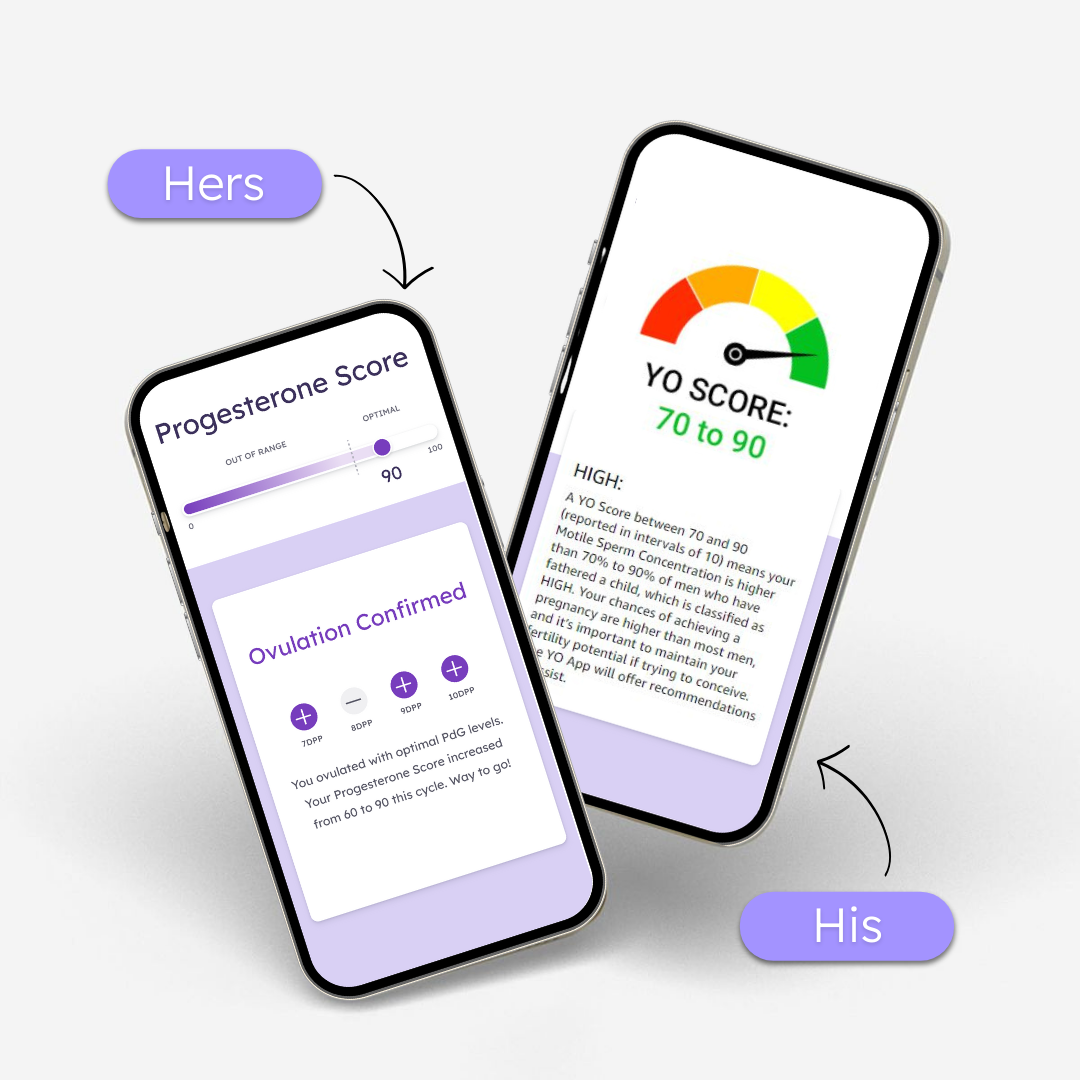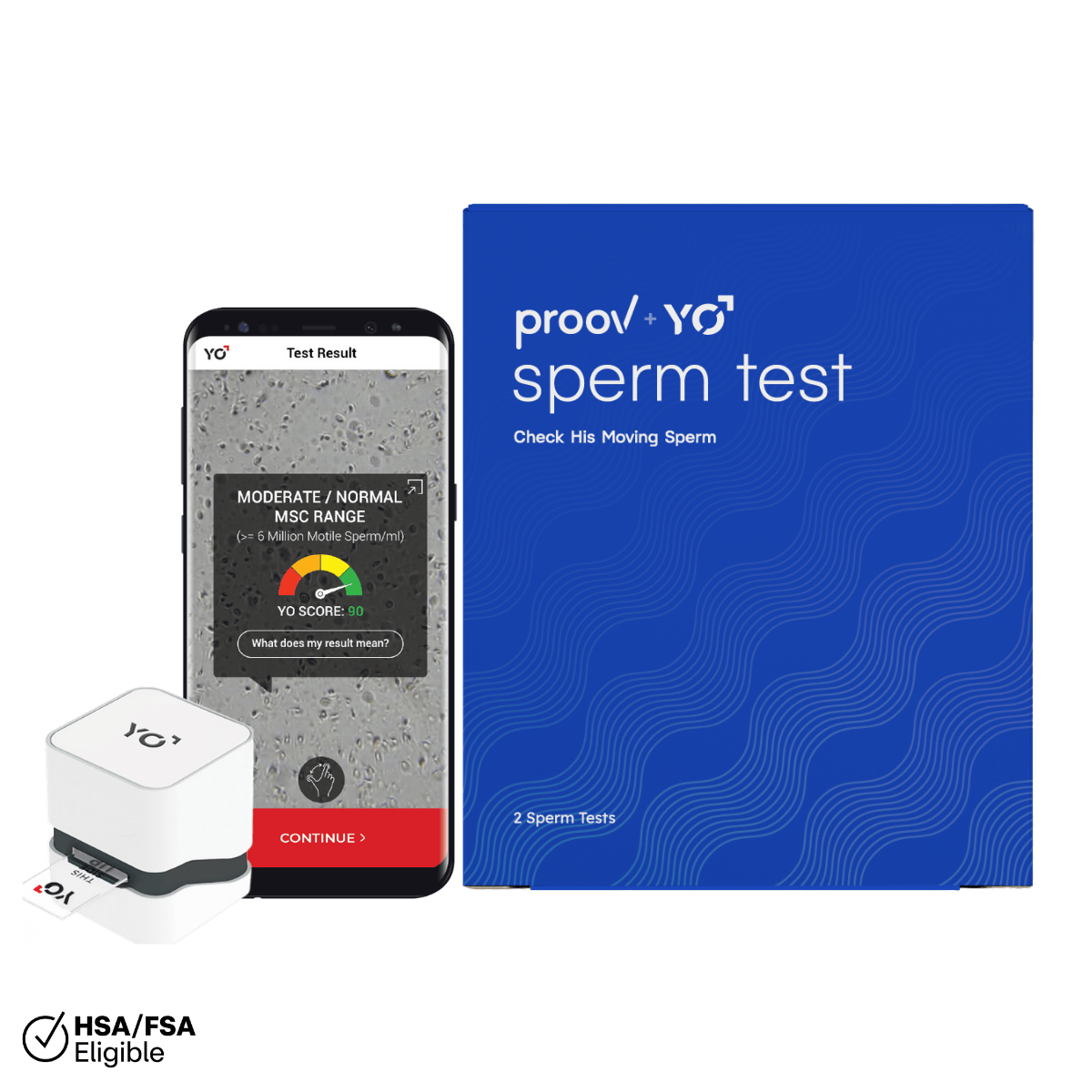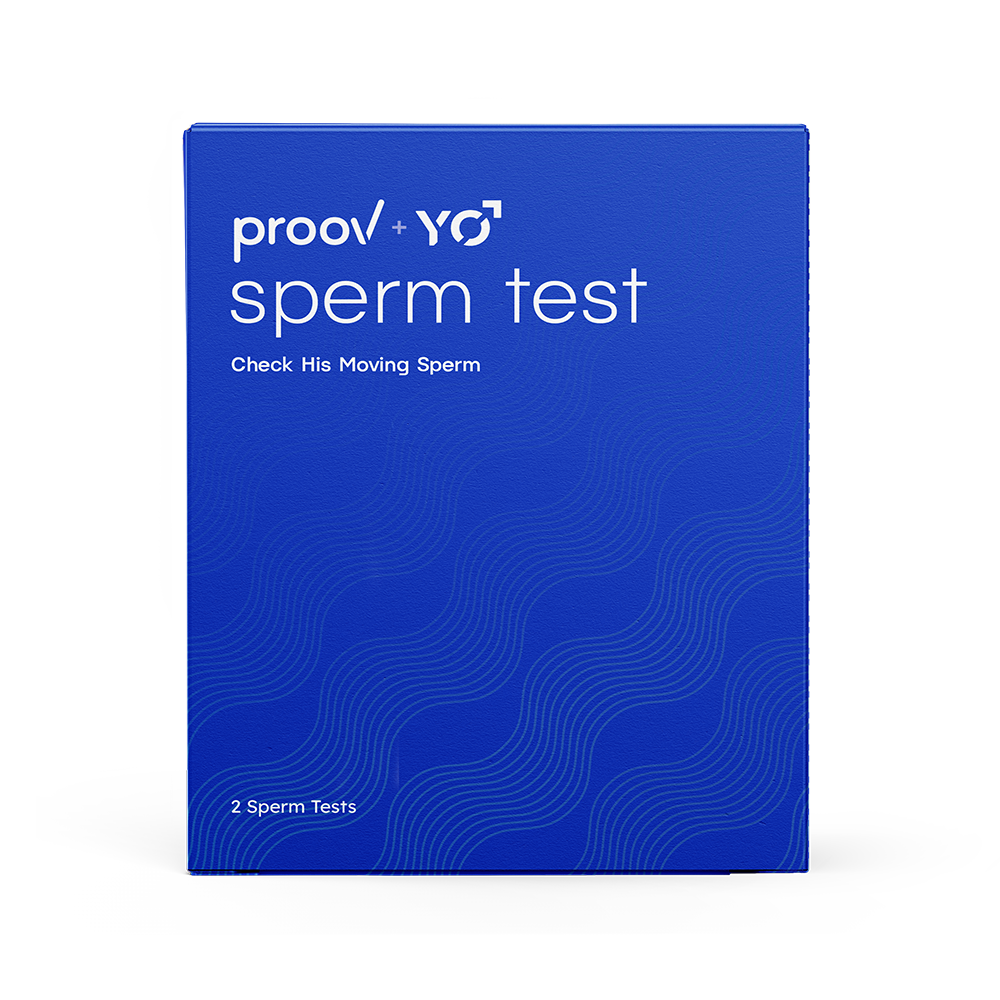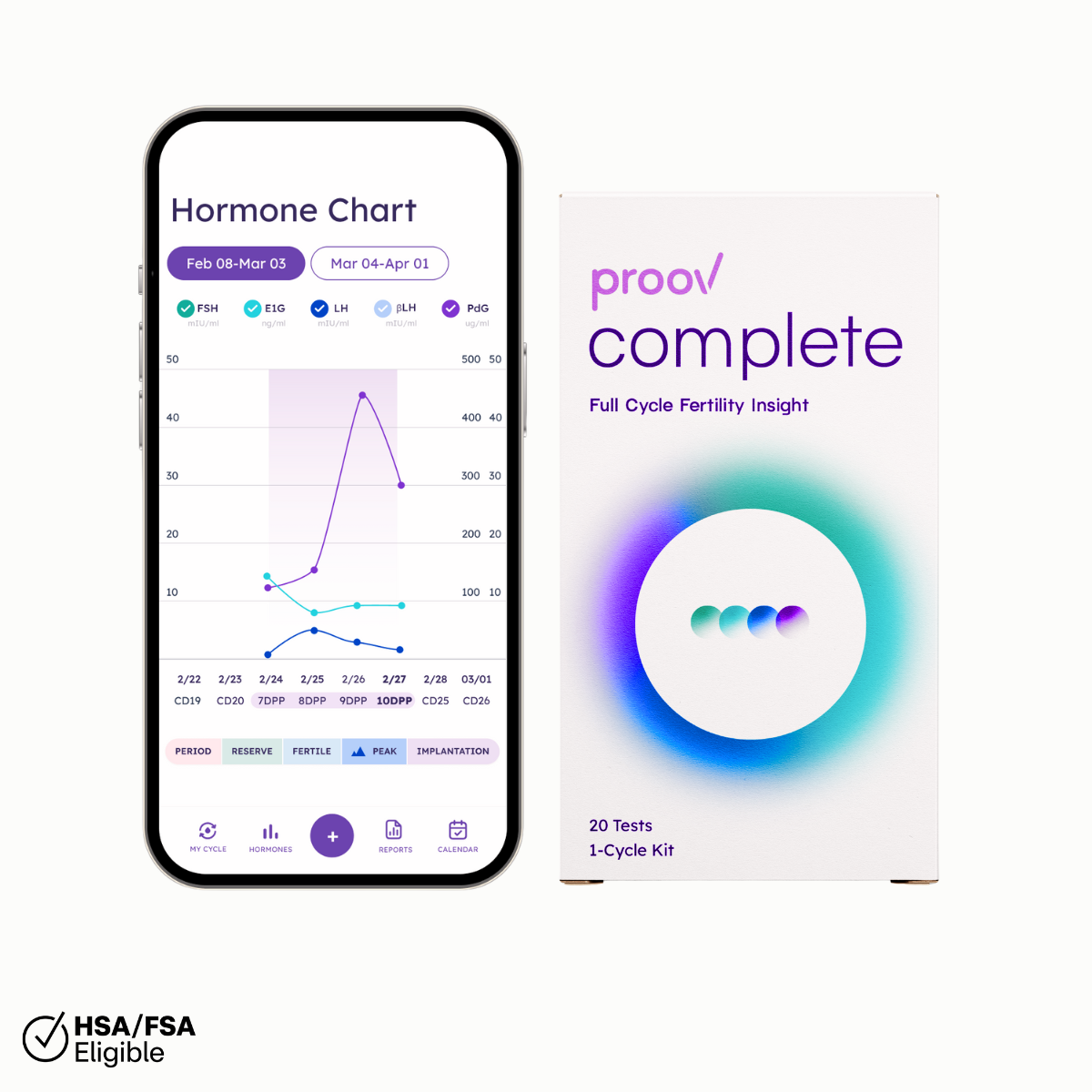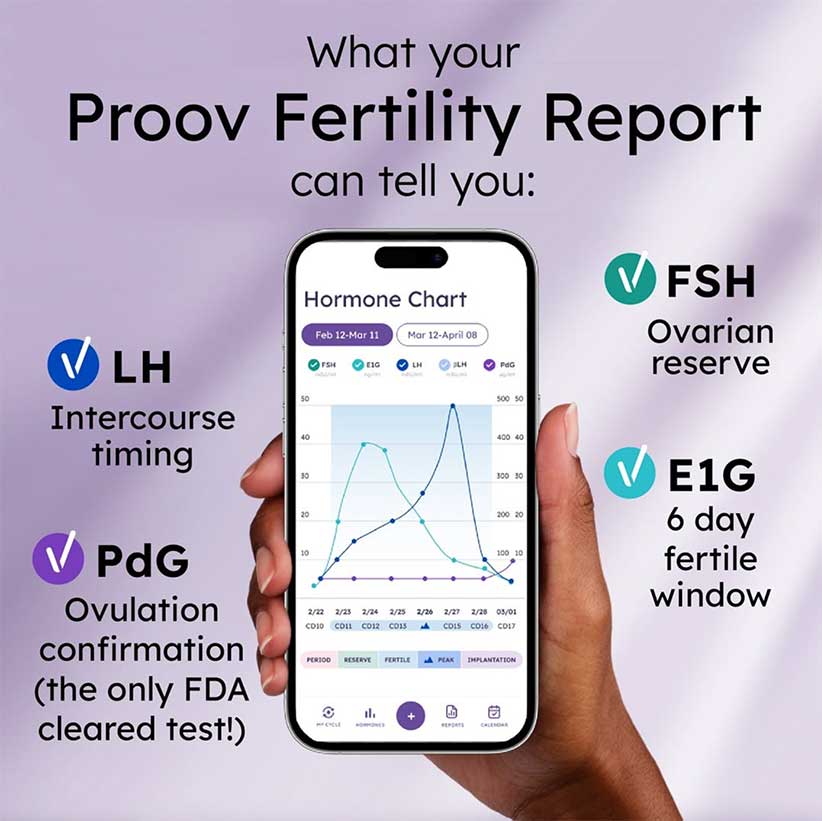What are fertility tests & what kind of information can they provide?
When it comes to starting a family, understanding your fertility hormones can be key to finding success in your TTC journey.
But you don’t have to do all that learning alone: Fertility tests are amazing tools that are designed to gather information on your reproductive health. They can give you a glimpse into various aspects of fertility, from hormone levels to sperm health and ovarian reserve.
Some tests can be ordered by your doctor, and you might work with them on next steps after you get your results. But in some cases, fertility tests can provide you with actionable information and next steps that you can sometimes take on our own.
Where can I get a fertility test done?

Luckily, there are several places to turn to for fertility testing, depending on your own preferences and needs. Here are some common options and their benefits and potential downsides:
At-Home Fertility Tests:
At-home fertility tests (our favorite option) offer a convenient and accessible option for women who want to monitor their fertility status in the comfort of their own homes. These tests typically involve collecting urine or saliva samples and using specialized kits to analyze hormone levels associated with fertility, like luteinizing hormones (LH), follicle stimulating hormone (FSH), progesterone, and anti-mullerian hormone (AMH).
Pros:
- Convenience: At-home fertility tests can be performed at any time and don’t require appointments or visits to medical facilities.
- Affordability: Compared to visiting fertility specialists or labs, at-home fertility tests are often more wallet-friendly.
- Privacy: You can perform the tests in the privacy of your home, avoiding the need for potentially uncomfortable medical appointments.
Cons:
- Limited scope: Some at-home fertility tests may provide valuable information on important aspects of fertility, such as ovulation timing or hormone levels, but they may not offer a comprehensive evaluation of fertility health.
- Interpretation challenges: Understanding and interpreting the results of at-home fertility tests may require some knowledge of reproductive physiology. (At Proov, our app and support team are designed to help you understand your results whenever you need extra guidance!)
- Follow-up care: If at-home tests indicate potential fertility issues, you may still need to consult with a healthcare provider for further evaluation and guidance.
Labs:
Another option for getting a fertility test done is to visit a diagnostic laboratory that offers fertility testing services. These labs can offer a range of tests, including hormone testing, semen analysis, and genetic testing for chromosomal abnormalities.
Pros:
- Convenience: Diagnostic labs are often readily accessible, and you can schedule appointments at your convenience.
- Quick results: Many lab tests provide results within a few days, allowing you to quickly take the next steps in your fertility journey.
- Confidentiality: Labs prioritize patient privacy and confidentiality, ensuring that your test results remain secure.
Cons:
- Limited expertise: While labs can provide test results, they may not offer the expertise or guidance needed to interpret those results in the context of fertility issues.
- Lack of personalized care: You may not receive personalized guidance or recommendations based on your test results from a lab setting.
- Cost: Depending on the tests ordered, fertility testing at a lab can be expensive, especially if you require multiple tests or follow-up appointments.
Consulting with Fertility Specialists:
Fertility specialists, also known as reproductive endocrinologists, are medical doctors who specialize in diagnosing and treating fertility issues. These professionals undergo extensive training and have access to advanced diagnostic tools to assess various aspects of your reproductive health. Usually, when you visit a fertility specialist, you can expect a thorough evaluation, which may include blood tests to measure hormone levels, ultrasound scans to assess ovarian reserve and uterine health, and other specialized tests like hysterosalpingography (HSG) to evaluate fallopian tube patency.
Pros:
- Expertise: Fertility specialists have specialized training and experience in diagnosing and treating fertility issues.
- Comprehensive evaluation: They can conduct a wide range of tests to assess different aspects of fertility.
- Personalized treatment plans: Based on your test results, fertility specialists can tailor treatment plans to address your specific needs.
Cons:
- Cost: Visiting a fertility specialist can be expensive, especially if your insurance doesn’t cover fertility-related services.
- Time-consuming: The process of scheduling appointments, undergoing tests, and waiting for results can be lengthy.
- Outcomes: Success isn't always guaranteed, and success rates for fertility treatment can vary clinic to clinic. You can always talk to your provider and how well their protocol has worked for patients similar to you.
Ultimately, the choice of where to get a fertility test done depends on your individual preferences, needs, and circumstances. Whichever option you choose, taking proactive steps to understand your fertility health can empower you on your journey to conception.
How can Proov help me get pregnant?
At Proov, we’re proud to be a leading brand in the field of at-home fertility testing. With our non-invasive, at-home tests, you can screen the four key pieces of the conception journey: check ovarian reserve, find your fertile window, can the egg and sperm meet, and confirm you have ovulated. Proov offers a Hers & His bundle to assess all 4 of key areas, including a Yo sperm testing kit to assess motile sperm concentration all from your home.
Our Complete test kit, for example, measures 45 hormone values across the entire length of your cycle – whether it’s irregular or not! This kit provides you with the data that can tell you the state of your ovarian reserve, when your most fertile days are, and whether you’ve ovulated successfully. All extremely important aspects for conception!
One of the unique benefits of some of our tests is their ability to confirm if ovulation has occurred successfully via PdG–a urinary marker of progesterone. Elevated levels of PdG allow for a higher chance at pregnancy. Our Complete and Confirm test kits both evaluate levels of PdG and can help women identify if support is needed during the second half of their cycle.
And with any of Proov’s test kits, you have access to our wonderful customer support team who can answer any questions you have about your results (and cheer you along the way).
Overall, by providing accurate and timely information about fertility status, we aim to empower women to take control of their reproductive health and increase their chances of getting pregnant by providing actionable insights.



